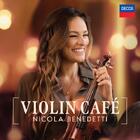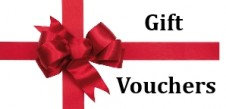
The Europadisc Review
Ravel - String Quartet, Piano Trio, Introduction & Allegro, ...
Nash Ensemble
£13.95
It is almost 40 years since the Nash Ensemble first made a recording of chamber works by Ravel. Comprising the Introduction and Allegro for harp, flute and string quartet, the Sonata for violin and cello, and the Piano Trio, it was set down in July 1986 for the CRD label, and is still in circulation. Four years later, the Ensemble made another recording of the Piano Trio, issued on Virgin Classics. Now they return to Ravel, on a disc including both the Introduction and Allegro and the Piano Trio, as well as the String Quartet, and (an added bon... read more
It is almost 40 years since the Nash Ensemble first made a recording of chamber works by Ravel. Comprising the Introduction and Allegro for harp, flute and string quartet, the Sonata for violin and ce... read more
Ravel - String Quartet, Piano Trio, Introduction & Allegro, ...

Nash Ensemble
The Spin Doctor Europadisc's Weekly Column

Pulling the Plug on Music 26th November 2025
26th November 2025
No-one with any interest in the wider plight of the arts and humanities in British universities will fail to have noticed the brutal wave of cuts currently being proposed at the University of Nottingham (UoN), which has hit the headlines in the past month. Among the staggering 48 courses under threat of closure (and with new applications currently suspended) are not only modern languages but also theology and (less esoterically) some nursing programmes. But it is the proposed axing of music degrees that has been greeted with the greatest dismay in the arts sector; and, as it is Europadisc’s ‘local’ university, we feel a particular alarm at the prospect. Several of our past and present employees have passed through UoN’s undergraduate music programme. The very idea that an institution which prides itself on being a member of the prestigious Russell Group can contemplate such... read more
 FREE UK SHIPPING OVER £35!
FREE UK SHIPPING OVER £35!






















